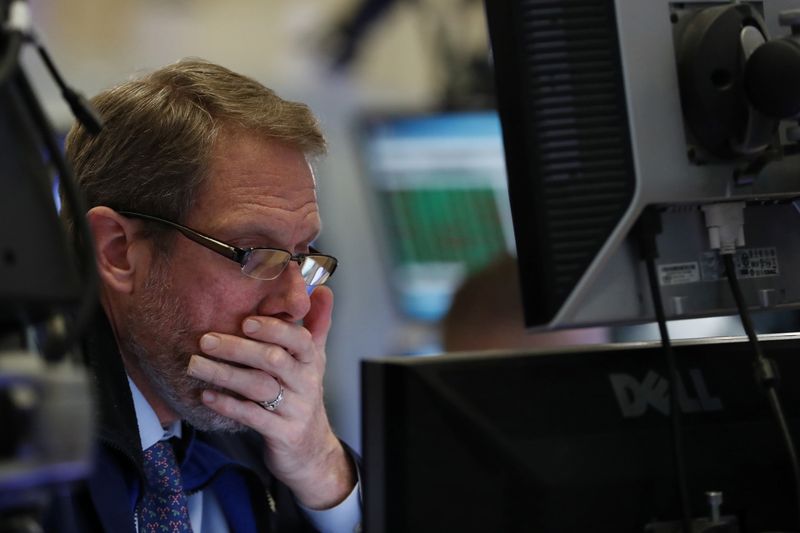This post was originally published on this site

The S&P 500 was down 0.3%, the Dow Jones Industrial Average fell 0.8%, or 257 points lower, and the Nasdaq gained 0.1%.
Home Depot Inc (NYSE:HD) fell more than 1% after reporting quarterly revenue that missed Wall Street expectations, weighed down by a fall in lumber prices and a weaker start to spring.
“We view these results negatively, and see an incremental negative read-through to Lowe’s (NYSE:LOW) and other home-oriented retailers,” Wedbush said in a note as the broader retail sector fell more than 1% on the day.
Sentiment on retailers was also hurt by data showing U.S. retail sales fell short of expectations in April, signaling waning consumer strength.
Retail sales were “held back by weakness in gasoline station sales, which was surprising given the increase in prices at the pump during the month,” Jefferies said.
Energy was the biggest drag on the broader market as weaker-than-expected Chinese economic data overshadowed expectations for a step up in energy demand.
The International Energy Agency hiked its forecast for global oil demand by 200,000 barrels per day to a record 102 million bpd.
Valero Energy Corporation (NYSE:VLO), Halliburton Company (NYSE:HAL), and Targa Resources Inc (NYSE:TRGP) were among the biggest decliners in energy.
Technology stocks resumed their upward momentum, led by Google (NASDAQ:GOOGL) and Microsoft (NASDAQ:MSFT), with the latter boosted by progress on its $69 billion deal to buy Activision Blizzard (NASDAQ:ATVI) after the deal won approval from the European Union a day earlier.
The approval of the deal from regulators in the EU is an “incremental positive” for Microsoft’s appeal against the UK competition watchdog, which recently blocked the deal.
Financials continued to drag on the broader market, though a 2% climb in Capital One (NYSE:COF) helped keep losses in check after the Warren Buffet’s Berkshire Hathaway (NYSE:BRKa) took a new nearly $1B position in the company.
Also weighing the broader market, U.S. Treasury Secretary Janet Yellen reaffirmed that the U.S. could default as soon as June 1 should Congress fail to reach a deal to lift the debt ceiling.
President Joe Biden and congressional leaders are set to meet on Tuesday to find a resolution to lift the U.S. government’s $31.4 trillion debt ceiling.


